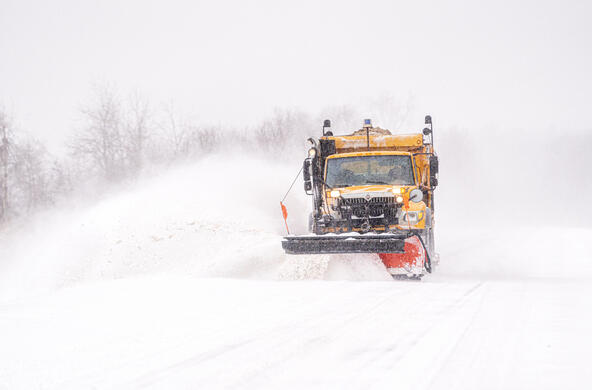
That's the sound of rock salt being spread to help de-ice a road. The salt from roads has been finding its way into groundwater, streams and our water supply.
Kelly: It's very important to reduce the amount of salt as much as we can when we use it on our roads in the wintertime. There are a number of steps road service agencies can take to use less salt but still be able to keep roads free of ice and snow, and thus safe for drivers.
Vicky Kelly is manager of the environmental monitoring program at the Cary Institute of Ecosystems Studies.
Kelly: Some of the steps that they can take include purchasing control systems to place on the distribution trucks. Those allow the drivers to control better the amount of salt that they're distributing through the hopper.
Some other steps that can be taken include covering rock salt piles adequately. We've discovered that a lot of salt can dissolve out of a storage location if it's not covered properly. So adequate covering of rock salt piles, storage piles.
Another way to reduce the overall amount of salt that is needed to keep roads free of ice and snow is to pre-treat rock salt with a solution. Sometimes it's just water that municipalities use; sometimes it's a solution of some kind of a brine that pre-wets the salt so that that salt sticks to the road surface better. Sometimes, when you use dry salt and you dump it on a road, it bounces to the side of the road where it does absolutely no good. A pre-wet salt, that makes it stick to the road a little bit better.








